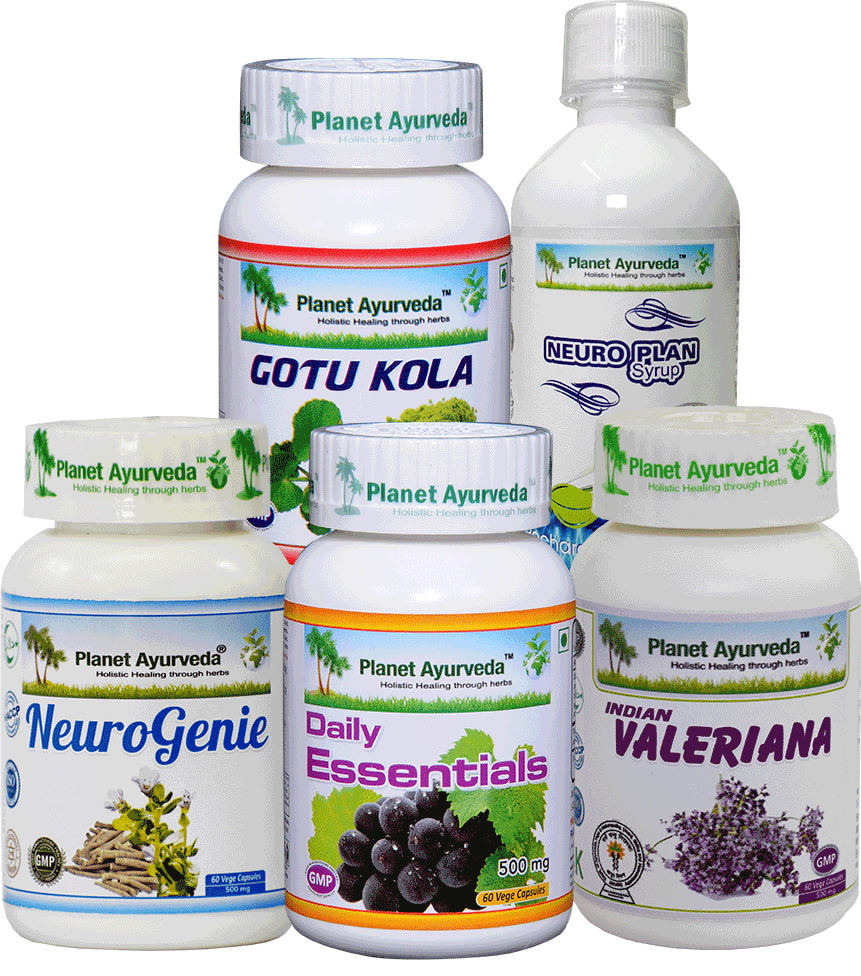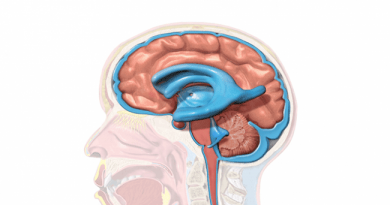Dysautonomia Causes, Symptoms, And Herbal Treatments
Abstract
It is a problem of ANS dysfunction in the brain. This part of the brain or nervous system regulates negative functions such as blood pressure, heart rate, breathing, body temperature, bladder function, hormonal function, digestion, and other bodily functions. When the ANS is affected, these abnormal functions result in difficulty breathing, etc. It may be innate or may appear suddenly or gradually at any time in life. So today we will talk briefly about autonomic dysfunction. We will discuss its causes, symptoms, problems, risks, diagnosis and treatment according to the world of Ayurveda.
Introduction
Dysautonomia is a disorder of the ANS. The ANS is responsible for involuntary actions (things that happen without thinking), such as breathing. Autonomic dysfunction is often associated with the failure of the sympathetic and parasympathetic components of the ANS.
Types
There are too many types of this but the main types of dysautonomia are
1. Neurocardiogenic syncope
Neurocardiogenic syncope can cause fatigue that occurs one or two times or several times a day throughout life. It is known as situational syncope.
2. POTS
POTS is a condition that can cause blood flow problems as well as is representative of a rapid heartbeat. It can cause tiredness, pain in the chest, and difficulty breathing.
3. Familial dysautonomia
Thus people come into this type from their congenital relatives. This leads to reduced pain responsiveness, absence of tears in the eyes, and difficulty regulating body temperature.
4. Multiple system atrophy
Multiple system atrophy is a fatal type of this and it develops in individuals above 40 years old. MSA can cause heart problems, hypotension, unproductiveness and urine leakage.
5. Pure autonomic failure
Pure autonomic failure An individual with deficiency experience a drop in the pressure of blood (B.P.) when they wake up or stand and experience symptoms such as dizziness, fatigue, vision problems, pain in the chest, and fatigue. Sometimes sleeping or taking a seat can relieve symptoms.
Causes
There may be a degenerative or genetic neurological problem (primary autonomic dysfunction). Another cause of autonomic dysfunction is secondary autonomic dysfunction. Other causes of illegal employment are
- Diabetes
- Amyloidosis
- Alcoholism
- HIV and AIDS
- Guillain-Barre Syndrome
- Ehlers-Danlos Syndrome
- Autoimmune Diseases
- Coronavirus
- Toxicity
- Corrosion
- Multiple Sclerosis
- Spinal cord injury
- Parkinson’s disease
Symptoms
Various symptoms are associated with dysautonomia
- Chest pain
- Low energy
- Nausea
- Mood changes
- Shortness of breath
- Hypotension
- Dizziness
- Dizziness and fainting
- Anxiety
- Shivering
- Irregular migraine
- frequent urination
- Insomnia
- Temperature control problems
- Memory and concentration problems
- Fatigue and inability to move
- Gastrointestinal problems
- Anorexia
Complication
Complications vary depending on symptoms. In Severe cases such as pneumonia and respiratory failure.
- Abnormal heartbeat (fast, slow, or irregular).
- Difficulty breathing.
- Digestive problems.
- Visual problems such as blindness or blurred vision.
Risk Factors
- If you have diabetes, amyloidosis, some autoimmune diseases
- Rheumatoid arthritis
- Guillain-Barre syndrome
- Amyloidosis
- Ulcerative colitis
- Muscular sclerosis
- HIV (Human immunodeficiency virus)
- A family has a disease.
- Vitamin B and Vitamin E deficiencies
How Is Dysautonomia Diagnosed
Tilt Table Test
- When you lean back on the table that can be raised and lowered at dissimilar angles. It gives support to your feet.
- A medical device is connected to you that calculates your systolic and diastolic pressures, oxygen level and pulse rate.
- As the table is tilted upward, the machine evaluates in what way your body controls ANS functions such as systolic and diastolic pressure and pulse rate.
Additional tests your doctor may recommend to diagnose the condition include
- Sweating test
- Breathing test
- Electrocardiography
- Cold Pressor test
- Nerve biopsy
- Hyperventilation test
- Orthostatic intolerance
- Electrochemical skin conductance
Treatment- (Lifestyle Changes)
There is no cure but symptoms are manageable. Routine treatments include
- Drink plenty of water daily. The extra fluid increases blood volume, which reduces symptoms.
- Add more salt (3 to 6 gm per day) to the balanced diet. It helps the body to maintain normal fluid levels in your arteries, which helps control blood pressure.
- Sleep in which the head is raised
- Maintain a healthy weight
- Always stand up slowly
Ayurvedic Overview
In Ayurveda, we can associate dysautonomia with manifestations of Vata energy. Abnormal Vata can lead to many diseases by causing many problems for the body. It also affects strength, skin, health and longevity. It interferes with the functioning of the mind and suppresses all thoughts. Therefore, it causes fear, sadness, confusion, anxiety and extreme delusion, and eventually stops breathing. People with a good flow and a normal state can live a long life without problems.
प्राणोदानसमानाख्याः व्यानापनैः सः पञ्चधा।
Five types of Vata: Prana, Udana, Samana, Vyana, and Apana. It works well with the body when there are no obstacles in space. They’re all in balance and position, doing their normal job, keeping the body in check and not disturbed. If they are on the wrong track or unstable, they can have a physical impact on their work and work and can quickly die.
Herbal Remedies for Dysautonomia by Planet Ayurveda
The Ayurvedic world is developing many herbs for different types of ailments. All medicines are made according to strict Ayurvedic principles given in ancient Ayurvedic books. All herbal products are GMP certified and truly vegetarian. All of them are safe for the human body and have shown positive results in the human body. They do not contain preservatives, chemicals and yeast. They are made from pure herbs. The World of Ayurveda provides therapeutic support to the immune system that can slow disease and improve quality of life. These herbs are as follows
Products List
- Neurogenie capsules
- Neuro plan syrup
- Gotu kola capsules
- Daily essentials
- Indian valerian
Product Description
1. Neurogenie Capsules
Neurogenie capsules are polyherbal. It consists of Brahmi (Bacopa monnieri) and Ashwagandha (Withania somnifera). It relieves and reduces the feeling of burning, discomfort, body aches and excessive thirst. It has mild laxative and antidiarrheal properties. Due to their good absorption properties, these capsules have a positive effect on the digestive system and increase the absorption of nutrients. Brahmi is very good for brain diseases. Brahmi revitalises brain cells and increases efficiency. Ashwagandha has been used to aid memory and cognition.
Dosage: 1-2 capsules two times a day.
2. Neuro Plan Syrup
Neuro Plan Syrup is a herbal syrup that includes Mandukaparni (Centella asiatica), Shankhpushpi (Convolvulus pluricaulis), Madhuyashti (Glycyrrhiza glabra), Pippali (Piper longum) and many more. It is used to treat diseases such as Parkinson’s disease, Alzheimer’s disease etc with other potent herbs. Mandukaparni may help with seizures and also stimulate the immune system and also has anti-diabetic properties. Shankhpushpi is a drug that maintains and potentiates intellect and memory. Madhuyashti has antidepressant and anti-diabetic properties. Pippali improves appetite and digestion.
Dosage: 1-2 teaspoons twice daily.
3. Gotu Kola Capsules
It is made of standardised extract Gotu Kola (Centella asiatica). It can improve memory and learning. It is a sedative, muscle relaxant, anticonvulsant, blood purifier, antipyretic, carminative and digestive aid. It is beneficial for anxiety, depression, high blood pressure, insomnia, psychosis, delirium and hysteria. It also helps maintain mental clarity and is beneficial for age-related mental disorders in the elderly. It manifests as anxiety, depression and neurasthenia.
Dosage: 1-2 capsules twice daily.
4. Daily Essentials
These are polyherbal capsules consisting of Bhumi amla (Phyllanthus niruri), Green tea (Camellia sinensis), etc. Bhumi amla is used to calm stress and get rid of many anxiety symptoms such as restlessness, and feeling uneasy. Green tea has a role in reducing hyperglycemia.
Dosage: 1-2 capsules two times a day.
5. Indian Valeriana
It is a single herbal capsule prepared using a standardised extract of Tagar (Valeriana wallichii). Tagar is beneficial for health as it is sheeta prashaman which is bitter. This works on all three doshas, but mostly on Kapha Vata dosha and thus supports a healthy nervous system.
Dosage: 1-2 capsules two times a day.
Contact Planet Ayurveda Support Team to provide you the costing / ordering and delivery information at – costing.planetayurveda@gmail.com or Call at 0172-521-4040 (India), +91-172-521-4040 (Outside India) or Whatsapp at (+91) 9915-593-604
Conclusion
Dysautonomia (Autonomic dysfunction) is a condition that affects the ANS. In Ayurveda, we can closely associate this disease with Vata dosha imbalance because in this disease the ANS changes and the other is agantuj vyadhi as it is caused by measles. There is no cure for this disease, but supportive care can be given to slow the progression of the disease. We can use many herbs such as Brahmi, ashwagandha, gotu kola, tagar, orange seed, bhumi amla, green tea, and Shankhpushpi, which are beneficial to the nervous system, calm the mind and improve repair skills. Neurogenic Capsules, Indian Valerian Root, Gotu Kola Capsules etc. Plants promote self-healing.








